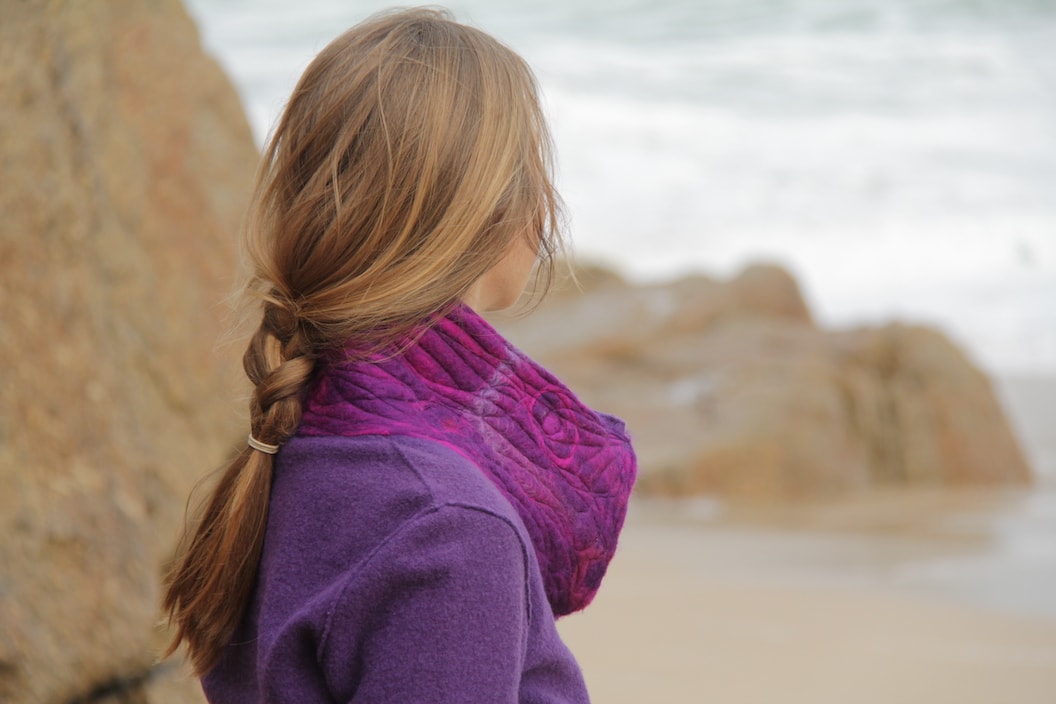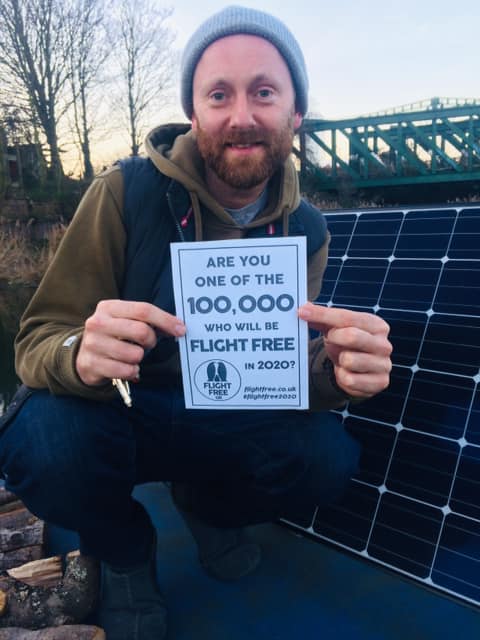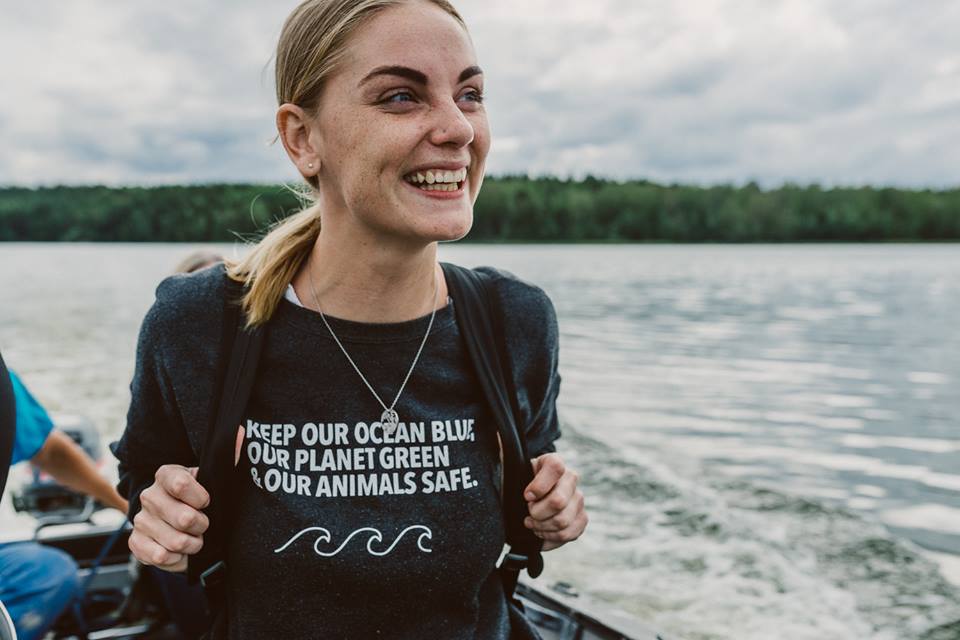Sue Hampton has more than 30 books to her name, and is currently publishing new novella 'For Life' in weekly instalments on her website. Her works are for both children and adults, and incorporate well-developed characters with a social and environmental narrative. Sue is a trustee for People not Borders, supporting refugees, and an activist with Campaign Against the Arms Trade. She is also an ambassador for Alopecia UK.
Tell us a bit about your past travel habits.
Because my parents never flew (or drove) I didn’t fly until I began working as a teacher and took a holiday in Corfu. After that I didn’t fly again until my thirties, when family holidays with my children ‘progressed’ beyond Scarborough and Devon and began to mean hot resorts with white beaches. In spite of the values I’d been raised with, it seemed quite normal, and I can’t say I protested much if at all.
So when did you make the decision to stop flying? What led to that decision?
By the time I met my second husband in '06 I’d recognised the damage flying does – not just theoretically but emotionally, personally. My brother Dave Hampton was by that point the Carbon Coach and he’d been an environmentalist all his adult life so it’s extraordinary that I lived so long in denial of what I knew to be true. I had been a Green Party member for years but my excuse was that for many years I’d been working an 80 hour week as a teacher and had no time to look beyond my children at home and school. I think many people are in the same sort of situation, shutting out the truth because it makes demands they feel they can’t meet.
"It's extraordinary I lived so long in denial of what I knew to be true."
Giving up teaching to write for a living freed me to think about the world around me. My final flight was to Florence, the one place I’d always longed to go, and on to Positano. I still had a lot of awakening ahead of me.
Do you still travel, and if so, how do you get around?
We mostly holiday in the UK and are going to Glasgow on the train in March. We’ve also taken Eurostar to Paris and to Bruges. We have a small car, its emissions low enough to spare us road tax, and we do use it when there’s no practical alternative. Taking books to sell as an author booked by a school, festival or writers’ group creates a problem we haven’t solved yet. We’re on the mailing list for Riversimple but also looking at car sharing.
As an author you’ve used your platform to talk about climate change. What motivates you to do that? Do you feel there has been a public shift in awareness about the issue?
Even when I wrote my children’s novel The Waterhouse Girl in 01 (it wasn’t published until 09) I made my heroine an eco-activist. In the sequel Crazy Daise she’s sixteen and campaigning for Ecocide Law. In the dystopian YA novel Start, Venice goes down. I also thought I’d ask Magic Oxygen to make The Biggest Splash a pay-as-you-feel e-book on my website because the subject felt so urgent; it’s about climate activism taken to the limit. And now I’m releasing a free novella for this Climate Emergency, chapter by chapter every Friday on my website. It’s called For Life and will end in time for the global Week of Rebellion when I will be on the streets again.
I used to see my writing as keyboard activism but in the last few years I’ve known that isn’t enough. When I spoke one Green Monday at the fracking site at Preston New Road I found myself saying that there’s no longer any other subject to write about. That led to this current project. But fiction MUST be led by character if the readers are going to care, and my characters are always in control. So it can’t be a treatise. What it can do, I hope, is involve readers emotionally. It’s an indirect way in to this biggest of all issues but it has to be a good story, and stories are powerful. They can change the way we see the world and others in it. They can change who we are.
"Stories are powerful. They can change the way we see the world and others in it. They can change who we are."
And YES, I think that public awareness of the climate crisis has grown enormously since last Oct/Nov when Greta Thunberg, who’s vegan and doesn’t fly of course, began her climate strike and the IPCC report followed. When she spoke to Davos, she was the only speaker who didn’t fly there. Now the kids’ climate strike has actually made the news. I think this year will be the turning point as more and more people not only change the way they live but demand radical change from governments. I am – sometimes – hopeful.
What would you say to people who are considering signing the pledge to take a flight free year?
I’d say it’s not a loss or a sacrifice but a gift to the children of the future. That there are other ways to make a difference by reducing our carbon footprints. That it’s a necessary choice. But also that I’m lucky because I don’t have family abroad, and that love miles are different, so I’m not smug and I’m not pointing the finger at anyone whose circumstances are more complex than mine.
How do you feel not flying has affected your life?
Not in any negative way. I’ve never felt a twinge of regret at anything I might be ‘missing’. And I’ve experienced some of the beauty of the UK.
Any other concluding remarks if you have any!
I’m a Quaker and my favourite Quaker phrase is ‘what love requires’.
The featured image shows Sue and her husband Leslie Tate as part of a spontaneous Quaker Meeting, blocking the road to the ExCel at Stop the Arms Fair 2017
__
Find out more about Sue on her website




